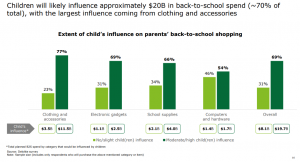
Did you know that more than half of new businesses fail within their first five years in operation? While running an SME is rewarding, it is also challenging and hard work, and small business owners need to be prepared and willing to do what it takes to ensure their business survives often volatile and highly competitive territory. Marketing is one element that is often overlooked by many small business owners, primarily due to the expense and time effective marketing strategies demand.
If you have embarked on a digital marketing strategy and your business is not reaping the business-enhancing rewards proficient digital marketing affords, you could be, like thousands of other SMEs, failing to get your digital marketing strategy right.
A lack of content strategy
When it comes to digital marketing, content is king. It always has been and always will be. Quality content that is driven by a healthy dose of relevant keywords is essential in giving SMEs the digital presence and adequate search engine rankings they desperately need to remain competitive online.
According to the Content Marketing Institute’s ‘Benchmarks, Budgets and Trends’ report, many SMEs don’t have a structured content strategy in place. In fact, the report shows that approximately 65% of B2B marketers say they do not have a documented content strategy implemented. Without a solid content strategy in place, which is long been established as being one of the most effective ways to market to consumers, SMEs simply aren’t capitalising on the optimum effects of digital marketing.
Void of a responsive website
Being online whilst on the move is practically the norm now, so why do so many SMEs fail to optimise their website for mobile devices? A study by Yodel and Research Now found that a whopping 40% of SMEs (at least 40%) have failed to optimise their website so it caters and fits the requirements for a mobile audience.
More and more consumers aren’t just searching for and researching products from mobile devices but they are actually buying products from the likes of smartphones and tablets. Consequently, SMEs that don’t have a website geared towards enabling consumers to buy products and services from mobile devices with ease, are ultimately missing out on this huge chunk of the consumer market.
Failing to lever the power of social media
Comprehensive digital marketing should include promoting goods and services through social media. Creating a strong online presence is essential if digital marketing is to work and social media is an invaluable tool in helping SMEs craft a strong digital presence and reach out to both new and existing customers.
Despite the blatant advantages of harnessing the power of social media in digital marketing campaigns, many SMEs are not involved in social media. As the Yodel and Research Now study found, only 11% of the SMEs which participated in the study said they do leverage social media for their small business to generate customers and clients, with 20% admitting they used no social media at all.
The digital landscape is evolving at a rapid rate. The savviest of businesses, small, medium or large, keep abreast of the latest developments and utilise the newest digital trends. For the vast majority of SMEs that don’t unleash the power of digital marketing, they are quite simply, missing out on the many business benefits an effective digital marketing strategy brings to small businesses, which can ultimately helps them stay afloat in a highly competitive business world.
If your digital marketing isn’t up to par, and think you need a little help, click here to receive our FREE 10 Top Tips to get your Digital Marketing Back on Track.
Digital & Social Articles on Business 2 Community(46)
Report Post







